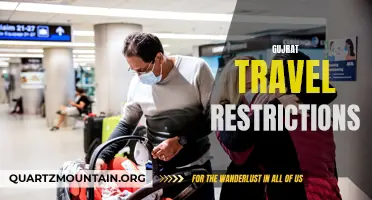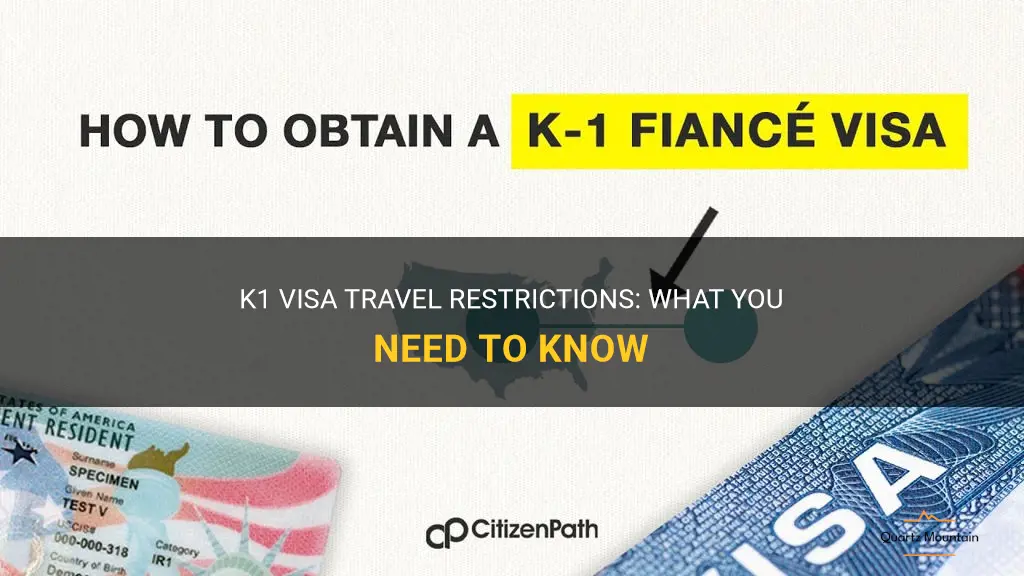
The world of international travel has become increasingly complicated, with various visa restrictions and regulations in place. One specific visa that has its own unique set of travel restrictions is the K1 visa. Designed for individuals planning to marry a U.S. citizen, the K1 visa offers a path to permanent residency. However, navigating the travel restrictions associated with this visa can be confusing. In this article, we will explore the ins and outs of K1 visa travel restrictions, providing you with the essential information you need to know before planning your journey.
| Characteristic | Value |
|---|---|
| Travel restrictions imposed by | United States government |
| Purpose of the visa | To allow a foreign national to enter the United States to marry a U.S. citizen within 90 days of arrival |
| Countries affected | All countries, as the travel restrictions apply to all foreign nationals |
| Duration of the visa | Valid for 6 months |
| Required documentation | Form DS-160, Passport valid for travel to the United States, Birth certificate, Divorce or death certificate of any previous spouse(s), Police certificates, Medical examination, Proof of financial support, Photographs |
| Proof of relationship | Evidence of communication and genuine relationship with the U.S. citizen petitioner |
| Entry into the United States | Only allowed for the purpose of getting married to the U.S. citizen petitioner, must marry within 90 days of entry |
| Employment authorization | Not granted automatically with the K1 visa, separate application for work authorization (Form I-765) needed |
| Extensions and change of status | Not allowed, need to marry the U.S. citizen petitioner and apply for an adjustment of status to obtain lawful permanent residency card (green card) |
| Dependent children | Can accompany the K1 visa holder using K2 visas |
| Travel restrictions due to COVID-19 | Additional travel restrictions may apply due to the COVID-19 pandemic, including mandatory quarantine or testing requirements |
What You'll Learn
- What are the current travel restrictions for K1 visa holders due to the COVID-19 pandemic?
- Can K1 visa holders enter the United States if they have been in a country with a travel ban?
- Are there any exemptions to the travel restrictions for K1 visa holders?
- Are there any alternative options for K1 visa holders who are unable to enter the United States due to travel restrictions?
- How long are the travel restrictions expected to remain in place for K1 visa holders?

What are the current travel restrictions for K1 visa holders due to the COVID-19 pandemic?
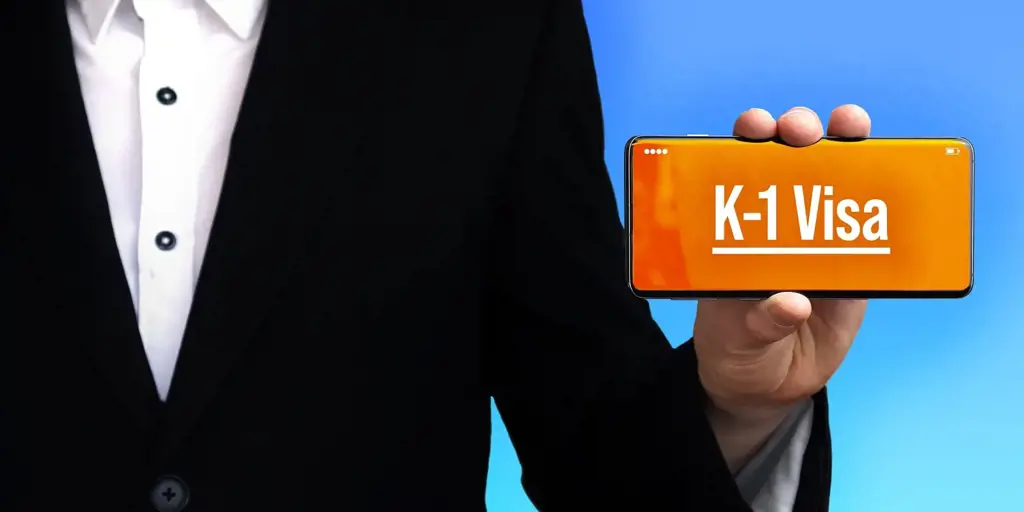
Due to the COVID-19 pandemic, there are travel restrictions in place for individuals holding K1 visas, also known as fiancé visas. These restrictions are subject to change and may vary depending on the country of origin and the destination country. It is important for K1 visa holders to stay updated on the latest travel restrictions and guidelines provided by their respective governments and embassies.
The COVID-19 pandemic has disrupted travel worldwide, and governments have implemented measures to control the spread of the virus. These measures include travel bans, quarantine requirements, and testing protocols that may impact K1 visa holders' ability to travel.
One common restriction imposed by many countries is the suspension of visa services or the closure of consular offices. This means that K1 visa holders may not be able to schedule visa interviews or obtain the necessary travel documents to enter their destination country. It is recommended to regularly check the website of the embassy or consulate for any updates on visa services.
Travel bans or restrictions on specific countries and regions are another barrier that K1 visa holders may encounter. Some countries have imposed entry bans or restrictions on travelers from certain countries or regions with high COVID-19 infection rates. This means that individuals with a K1 visa from these countries may be barred from entering their destination country. It is crucial to review the travel advisories and restrictions of both the country of origin and the destination country before making any travel plans.
Additionally, quarantine requirements may be in place for individuals arriving from countries with significant COVID-19 transmission rates. This means that K1 visa holders may be required to undergo a mandatory quarantine period upon arrival. The length of the quarantine period varies depending on the country's regulations and may range from a few days to several weeks. K1 visa holders should be prepared for the possibility of having to quarantine upon arrival and should consider any potential financial and logistical implications.
COVID-19 testing requirements are another aspect to consider when planning travel as a K1 visa holder. Some countries may require a negative COVID-19 test result before entry, while others may require testing upon arrival. It is important to understand the testing requirements of both the country of origin and the destination country to ensure compliance and avoid any travel disruptions.
It is crucial for K1 visa holders to stay informed about the latest travel restrictions and guidelines to make informed decisions about their travel plans. They should closely monitor the official websites of their respective governments, embassies, consulates, and health authorities for updates on travel advisories, visa services, entry requirements, quarantine measures, and testing protocols.
In conclusion, the current travel restrictions for K1 visa holders vary depending on the country of origin and the destination country. These restrictions may include the suspension of visa services, entry bans or restrictions, quarantine requirements, and COVID-19 testing protocols. It is vital for K1 visa holders to regularly check the official websites of relevant authorities for the latest information and guidance to ensure a smooth and safe travel experience during the COVID-19 pandemic.
The Benefits of Implementing Executive Travel Policy Restrictions
You may want to see also

Can K1 visa holders enter the United States if they have been in a country with a travel ban?
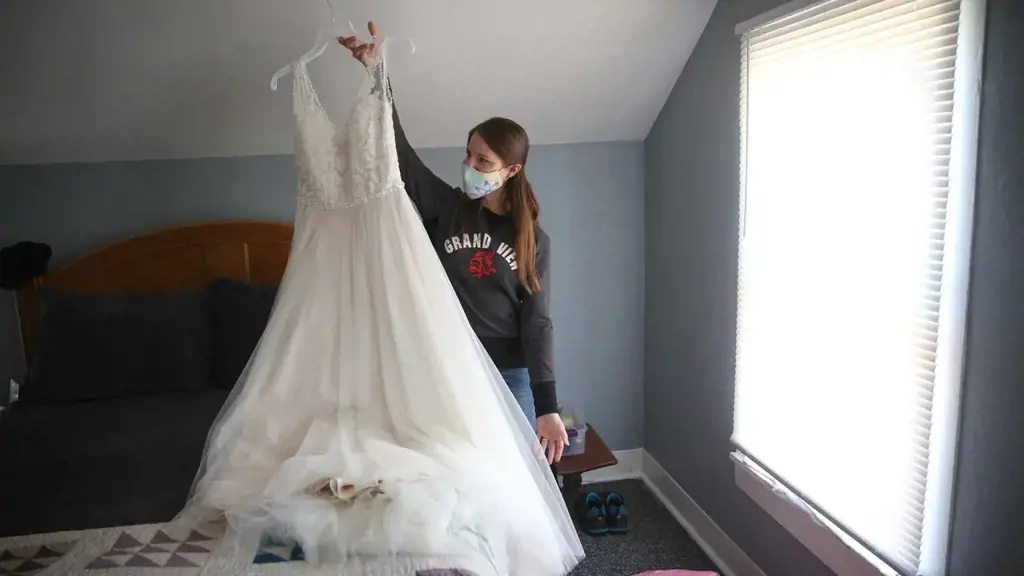
The K1 visa, also known as the fiance visa, allows foreign nationals to enter the United States in order to marry their U.S. citizen fiancé(e) within 90 days of arrival. However, with the ongoing COVID-19 pandemic, many countries have implemented travel bans and restrictions in an effort to control the spread of the virus. This raises the question of whether K1 visa holders can enter the United States if they have been in a country with a travel ban.
The answer to this question depends on the specific travel ban in place and the exemptions that may apply. While the United States has imposed travel bans on certain countries, there are exceptions for certain categories of travelers, including U.S. citizens and legal permanent residents. In some cases, these exemptions may also apply to K1 visa holders.
For example, the presidential proclamation issued on January 25, 2021, restricts entry into the United States for travelers who have been physically present in certain countries, including the United Kingdom, Ireland, and the European Schengen area, within the 14 days prior to their arrival in the U.S. However, there are exceptions for U.S. citizens, permanent residents, and their immediate family members, including spouses and children.
In the case of K1 visa holders, it is important to note that they are considered to be immediate family members of their U.S. citizen fiancé(e). Therefore, they may be eligible for an exemption from the travel ban if they have been in one of the restricted countries. However, it is crucial to check the specific guidelines and requirements established by the U.S. government and the U.S. embassy or consulate in the country where the K1 visa holder is located.
In addition to the travel ban exemptions, K1 visa holders must also comply with other entry requirements. This includes providing proof of a negative COVID-19 test result taken within 72 hours of their departure to the United States and completing any required quarantine or self-isolation period upon arrival.
It is also important to keep in mind that the situation regarding travel bans and restrictions can change rapidly. Travelers should regularly check the U.S. Department of State and the U.S. embassy or consulate websites for the most up-to-date information and guidance.
In conclusion, K1 visa holders may be able to enter the United States even if they have been in a country with a travel ban. It is important to review the specific travel ban and exemptions, as well as comply with any additional entry requirements, such as providing a negative COVID-19 test result and completing quarantine or self-isolation. Staying informed and following the guidance of the U.S. government and authorities is crucial for a successful entry into the United States.
Understanding Ulster County Travel Restrictions: What you Need to Know
You may want to see also

Are there any exemptions to the travel restrictions for K1 visa holders?
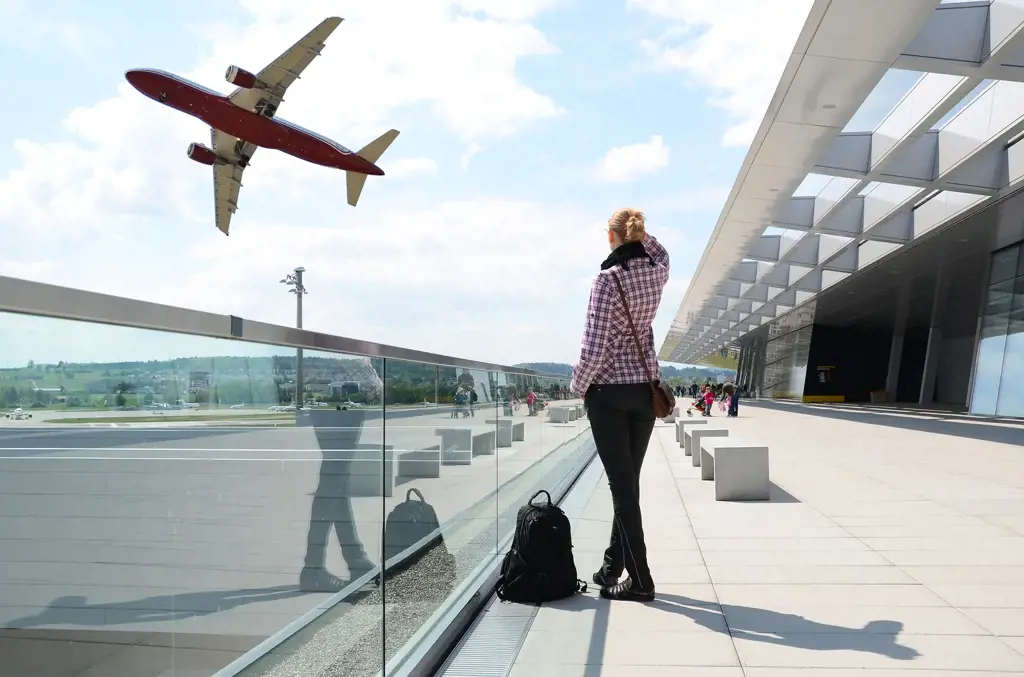
The COVID-19 pandemic has led to various travel restrictions and measures implemented by governments worldwide. These restrictions have affected many individuals, including K1 visa holders who are planning to enter the United States. However, there may be exemptions to the travel restrictions for K1 visa holders in certain circumstances.
The K1 visa, also known as the fiancé(e) visa, allows foreign nationals engaged to U.S. citizens to enter the United States for the purpose of getting married. It is important to note that these exemptions may vary depending on the specific travel restrictions in place and the discretion of immigration authorities.
One possible exemption for K1 visa holders is the National Interest Exception (NIE). The NIE allows certain individuals to enter the United States despite the travel restrictions if their entry is considered to be in the national interest of the country. This could include cases where the K1 visa holder's entry is necessary for humanitarian reasons, public health reasons, or significant economic interests.
To be eligible for the NIE, the K1 visa holder may need to provide evidence of their situation and the reasons why their entry is deemed to be in the national interest. This could include documentation such as medical reports, letters from employers, or proof of financial investments in the United States.
Another possible exemption for K1 visa holders is if they have been granted an approved waiver of the travel restrictions. This waiver can be obtained through a request to the U.S. embassy or consulate where the K1 visa was issued. The waiver is granted based on compelling circumstances, such as urgent medical treatment, humanitarian reasons, or business interests that outweigh the restrictions.
However, it is important to note that even with these exemptions, K1 visa holders may still be subject to additional screening and quarantine requirements upon arrival in the United States. They may also need to comply with any local regulations or restrictions imposed by the state or city they are entering.
It is crucial for K1 visa holders to stay informed about the latest travel restrictions and exemptions. They should reach out to the U.S. embassy or consulate where their visa was issued for guidance and clarification on their specific situation. As the COVID-19 situation continues to evolve, it is important to monitor updates from reliable sources such as the U.S. Department of State and the U.S. Centers for Disease Control and Prevention (CDC).
In conclusion, while there are exemptions to the travel restrictions for K1 visa holders, each case is unique and subject to individual circumstances. The National Interest Exception and approved waivers are possible avenues for K1 visa holders to enter the United States, but it is essential to stay updated and seek guidance from the relevant authorities for the most accurate information.
Understanding Security Clearance Travel Restrictions: What You Need to Know
You may want to see also

Are there any alternative options for K1 visa holders who are unable to enter the United States due to travel restrictions?
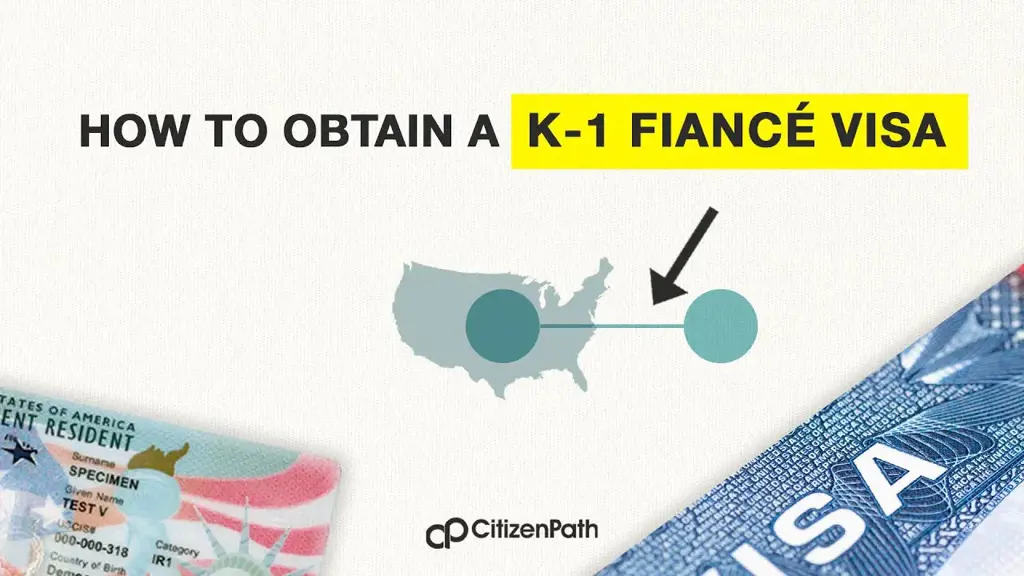
In light of the ongoing COVID-19 pandemic, many countries, including the United States, have implemented travel restrictions to curb the spread of the virus. This has affected various visa holders, including those who are planning to enter the United States on a K1 visa, also known as the fiancé visa.
The K1 visa is designed for foreign nationals who are engaged to U.S. citizens and wish to enter the United States to get married. However, with the current travel restrictions in place, many K1 visa holders find themselves unable to enter the country as planned. So what are the alternatives for these individuals?
- Delaying the travel: One option for K1 visa holders is to postpone their travel plans until the travel restrictions are lifted. While this may be frustrating and result in a delay in their wedding plans, it is a viable option for those who are not required to enter the United States immediately.
- Applying for a National Interest Exception: Some K1 visa holders may qualify for a National Interest Exception (NIE) to the travel restrictions. NIEs are granted on a case-by-case basis and are typically reserved for individuals whose entry into the United States is deemed to be in the national interest. However, qualifying for an NIE can be challenging, and interested individuals should consult with their nearest U.S. embassy or consulate for more information.
- Getting married in the home country: Another alternative for K1 visa holders unable to enter the United States could be to get married in their home country. While this may not be the ideal scenario for those who had planned to have a wedding ceremony in the United States, it will still allow them to establish a legal marriage. Once married, they can then pursue a spousal visa, such as the K3 visa or the CR1 visa, to join their U.S. citizen spouse in the United States.
- Exploring other visa options: Finally, K1 visa holders who are unable to enter the United States due to travel restrictions may want to consider other visa options that are not subject to the same restrictions. For instance, they could explore student visas, work visas, or tourist visas, depending on their individual circumstances and qualifications. However, it should be noted that changing visa categories can be complex and may require additional documentation and processes.
In conclusion, while the travel restrictions imposed due to the COVID-19 pandemic have created challenges for K1 visa holders, there are alternative options available. These may include delaying travel, applying for a National Interest Exception, getting married in the home country and pursuing a spousal visa, or exploring other non-restricted visa options. It is essential for affected individuals to consult with immigration professionals or their nearest U.S. embassy or consulate for personalized advice based on their specific situation.
A Comprehensive Guide to Sex Offender Travel Restrictions by State
You may want to see also

How long are the travel restrictions expected to remain in place for K1 visa holders?
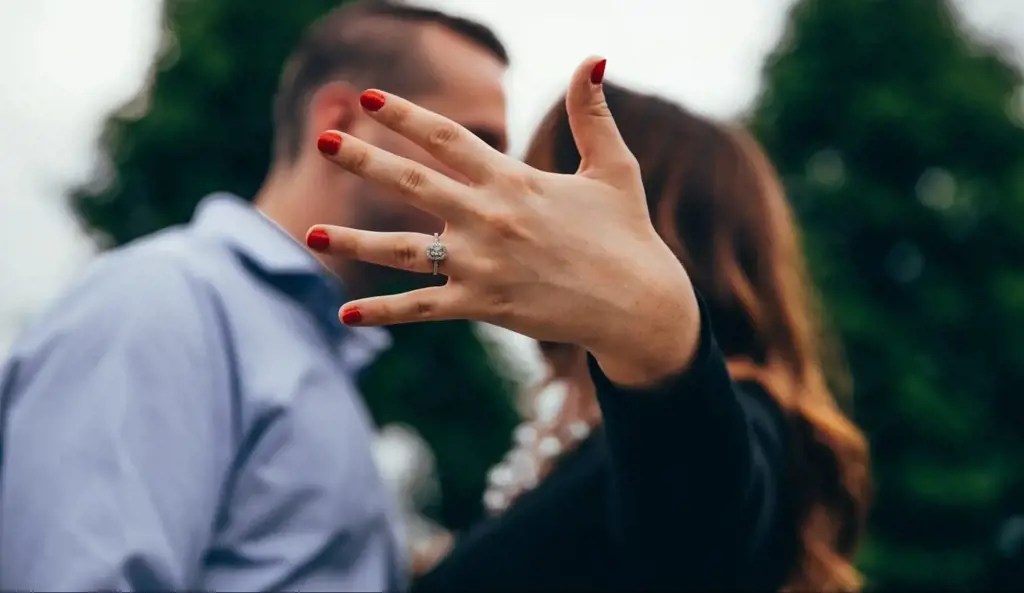
The COVID-19 pandemic has brought about significant travel restrictions and uncertainties for individuals worldwide, including those in the process of obtaining a K1 visa. The K1 visa, also known as the fiance visa, allows foreign individuals to enter the United States for the purpose of marrying a U.S. citizen and subsequently adjusting their status.
As countries around the world continue to grapple with the effects of the pandemic, travel restrictions have been put in place to minimize the spread of the virus. These restrictions have affected K1 visa holders, preventing them from traveling to the United States to be with their partners and begin their lives together.
The duration of travel restrictions for K1 visa holders varies and depends on several factors, including the country of origin and the current state of the pandemic. As the situation is constantly evolving, it is challenging to predict an exact timeline for when these restrictions will be lifted.
The U.S. government, along with other countries, closely monitors the status of the pandemic and assesses the risks associated with international travel. As vaccines become more widely available and countries gain control over the spread of the virus, travel restrictions may gradually ease. However, it is essential to keep in mind that this process will take time and will depend on various factors such as vaccination rates, infection rates, and new variants of the virus.
In the meantime, it is crucial for K1 visa holders and their partners to stay informed about any updates regarding travel restrictions. The U.S. Department of State and the U.S. Citizenship and Immigration Services (USCIS) provide regular updates on their websites and social media channels.
K1 visa holders should also communicate with their designated consulates or embassies to gather the most up-to-date information about travel restrictions and the visa issuance process. Consular officers may provide guidance on the required documentation, scheduling appointments, and any exceptions or waivers available.
During this time, it is essential for K1 visa holders and their partners to maintain open communication and support each other despite the physical distance. Utilizing virtual communication tools can help bridge the gap and maintain the connection while waiting for the travel restrictions to be lifted.
It is important to stay patient and flexible as the situation evolves. While the travel restrictions may be frustrating and pose challenges, the health and safety of everyone involved, as well as the general public, are of utmost importance.
In conclusion, the duration of travel restrictions for K1 visa holders remains uncertain and varies depending on the country of origin and the pandemic's progression. Staying informed about updates from the U.S. government, maintaining contact with consulates or embassies, and utilizing virtual communication tools can help navigate these challenging times. Patience, flexibility, and understanding are essential as individuals await the moment when they can finally be together with their loved ones.
Understanding New Zealand's Strict DUI Travel Restrictions
You may want to see also
Frequently asked questions
Yes, there are travel restrictions in place for K1 visa holders due to the ongoing COVID-19 pandemic. The United States has suspended entry for most non-U.S. citizens who have been in certain countries in the 14 days prior to their planned travel to the U.S. These travel restrictions are subject to change, so it is important to stay updated on the latest information from the U.S. government.
In certain situations, K1 visa holders may be exempt from the travel restrictions. This can include cases where the K1 visa holder is the spouse or child of a U.S. citizen, or if the K1 visa holder has been granted a national interest exemption by the U.S. government. It is important to consult with an immigration attorney or contact the U.S. embassy or consulate for guidance on the specific circumstances.
K1 visa holders should follow all recommended health and safety guidelines when traveling during COVID-19. This includes wearing a mask, practicing social distancing, washing hands frequently, and avoiding close contact with others. It is also important to stay informed about any quarantine or testing requirements in the destination country and to comply with them.
Yes, K1 visa holders can be denied entry to the U.S. if they do not meet the requirements and exemptions outlined in the travel restrictions. It is important for K1 visa holders to carefully review the travel restrictions and any applicable exemptions before making travel plans. If there are any concerns or uncertainties, it is recommended to consult with an immigration attorney or contact the U.S. embassy or consulate for guidance.







